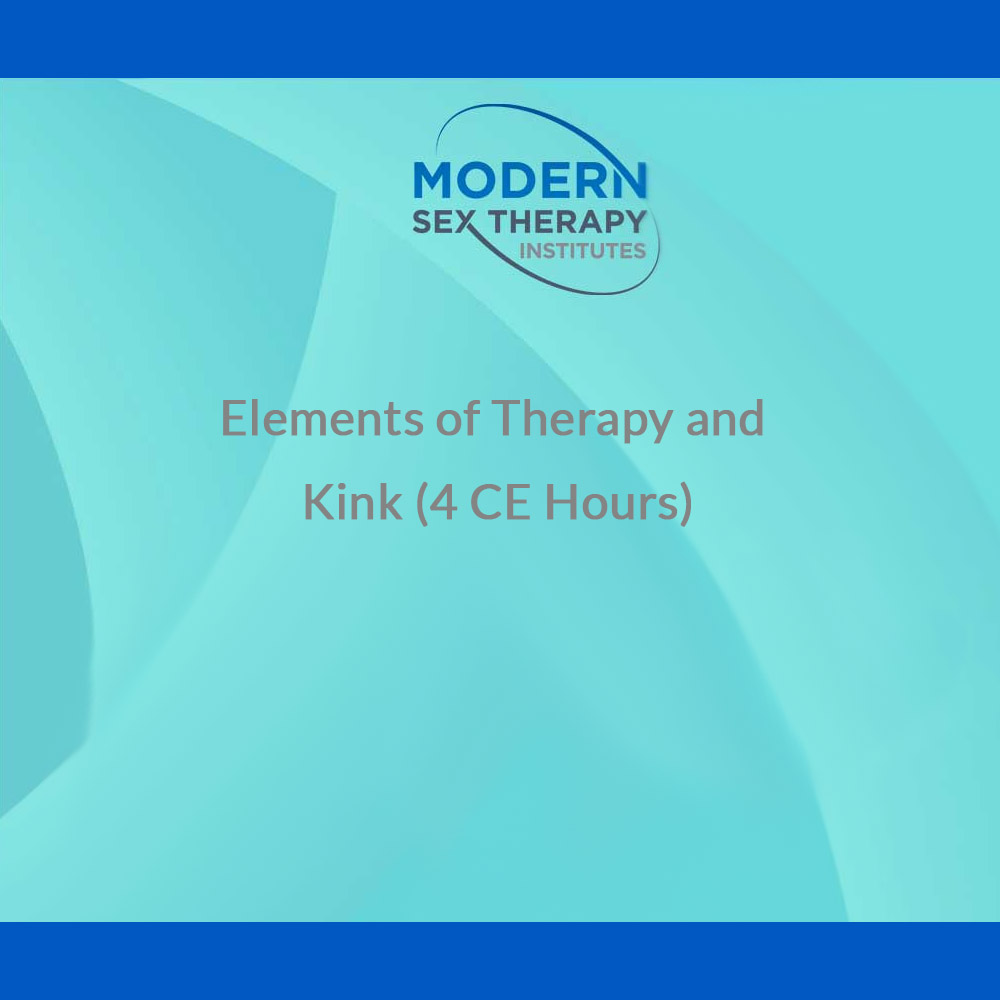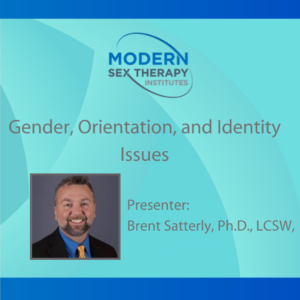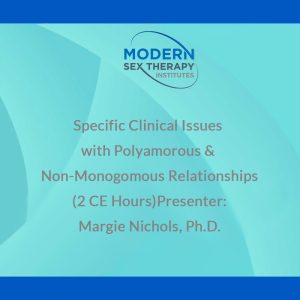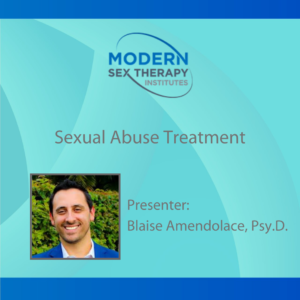Elements of Therapy and Kink (4 CE Hours)
$160.00
4 CE Hours
Presenter: Anna Randall, DHS, LCSW, MPH
Recorded workshop available via video on demand
AASECT Category:
Human Sexuality Education
Section F
understand their client’s experience, their specific issues and what specialized skills make for culturally informed and humble care.
Learning Objectives
Elements 1: Basics of Kink and Therapy
- Identify at least key demographics, motivations, behaviors, and relationship roles common in the kink subculture
- Propose at least three specific issues or concerns that bring kink-involved clients into therapy.
Elements 2: BDSM and the DSM
- Summarize how the field of mental health has pathologized BDSM behaviors and interests.
- Compare three differences between the psychiatric/psychological literature and the sociological literature and how they characterize kink interests and behaviors
Activity Schedule:
First Hour:
Describe some demographics, motivations, behaviors, and relationship roles common in the kink subculture
•Demographics
•Motivations
Second Hour:
Identify at least three specific issues or concerns that bring kink-involved clients into therapy.
•Consent Violations
•Disclosure Issues (Coming Out Issues)
•Interest and Desire Discrepancies
•Distress related to kink thoughts, fantasies or behaviors
Describe how the field of mental health has pathologized BDSM behaviors and interests.
DSM and BDSM
●Submissiveness and Dependent Personality Disorder and Co-Dependency
●Dominance and Anti-Social Personality Disorder – Dark Triad
●Sex Addiction and Kink
●psychological is more pathologizing than sociological, especially forensic psychology literature
●psychiatric literature focuses on treatment and sexuality change efforts, the sociological does not
●difference in populations studied: forensic/psychiatric vs. sociological
About the Presenters:
Anna Randall, DHS, LCSW, MPH
Anna Randall (she/her/hers) is Co-Founder & Exec. Dir. of TASHRA – The Alternative Sexualities Health Research Alliance tashra.org, a national nonprofit sexuality research and clinical training organization. In 2009, she earned her Doctorate in Human Sexuality and Masters in Public Health from the Institute for the Advanced Study of Human Sexuality, and earned her Masters in Social Work from Boston University in 1988. Dr. Randall is a published researcher on the lived-experienced of kink-involved (BDSM & fetish) individuals, a sex therapist & adjunct faculty at Widener Univ. Her work focuses on the emergence of kink as an area of clinical and research specialty and she is the Co-Principal Investigator on the International Kink Health Study 2021, she’s on the leadership team forming the Clinical Practice Guidelines for Working with People with Kink Interests, and is a founder of the MOTE Conference. She is a licensed clinical social worker with a specialty in sex therapy with individuals, couples, and other relational configurations. She leads case consultation groups focusing on clinical practice with diverse sexuality and mentors educators, therapists and those looking to get involved in kink as a focus of professional interest. Drannarandall.com
| Select One: | Attend In-Person, Attend Live Online |
|---|





